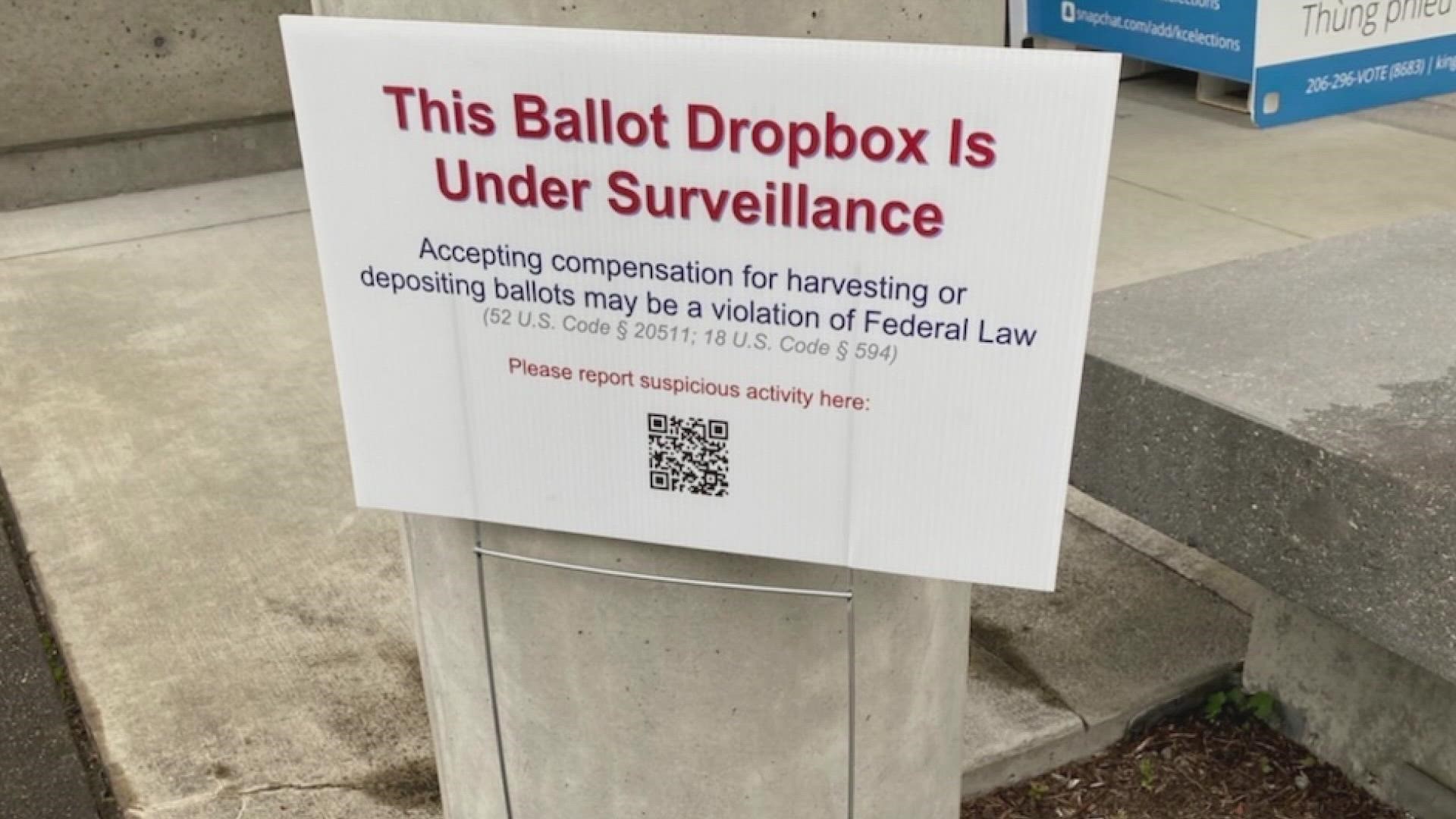SEATTLE — Local leaders are working to fight election misinformation with the primary races just a week and a half away.
A roundtable, hosted by Secretary of State Steve Hobbs, was held on Thursday in South Lake Union. The discussion focused on stopping false narratives that could lead to voter intimidation.
Signs with the words "This Ballot Box is under surveillance" appeared near King County ballot boxes. They have since been taken down. Election officials say it's unknown who recently placed the signs in at least nine locations.
"It has been brewing for quite some time, really since last fall,” said Mike Caulfield, a Research Scientist with University of Washington's Center for an Informed Public.
Caulfield worked on a report released in April about the ballot collection narratives around dropboxes.
He said the narrative that dropboxes have "less oversight, less checks, things like that – all of that is not true."
Caulfield says it comes from conspiracy theories about elections that are spread online “to fuel a mistrust around these dropboxes and then turn that into a mobilization of people to surveil those drop boxes."
“The surveillance issue really bothers me because it is a third party that is doing it. I don't know what they are trying to do,” said Hobbs.
“We kind of track misinformation as it arises online,” said Rachel Moran with the Center for an Informed Public.
The Center released a report about misinformation in the 2020 election, and they are now focusing on false narratives already clouding upcoming races.
“In this state that would be one place where we are watching the narratives around those voting machines,” said Caulfield.
“Anything that we can do within our research to sort of stop the spread of misinformation or to educate people on how the system actually works is a benefit to hopefully everyone,” said Moran.
U.S. Attorney Nick Brown said any attempt to "harrass or discourage citizens from voting" using election drop boxes will be investigated and prosecuted in federal court.
“We recognize and revere the First Amendment right to free speech and political debate. But there is a time when protected speech turns into acts of intimidation or threats of violence," Brown said. "We will work with our law enforcement partners to investigate threats of violence, hate crimes, and any effort to intimidate voters or those tasked with ensuring free and fair elections in our state.”
Intimidating or threatening other people in order to discourage them from voting is a felony under federal law, which is punishable by up to five years in prison. Federal law also prohibits bribing voters, buying and selling votes, impersonating voters, altering vote tallies, stuffing ballot boxes and marking ballots for voters against their wishes or without their input.

